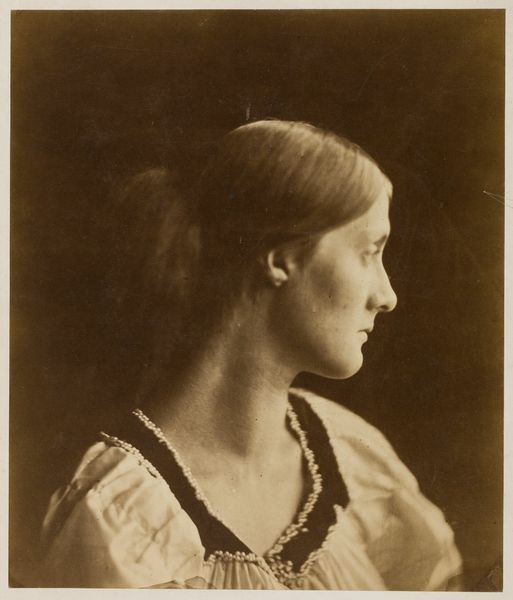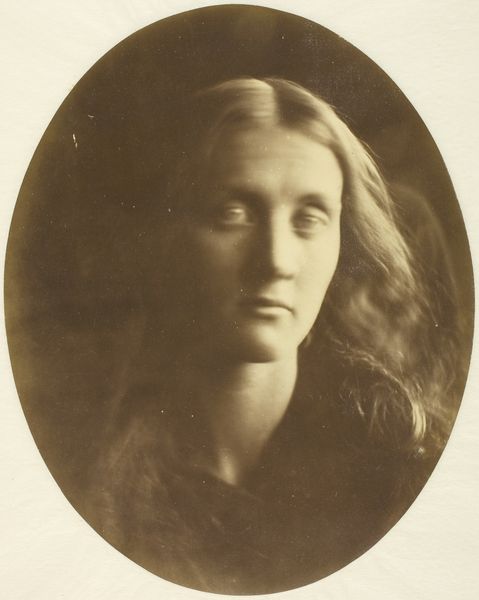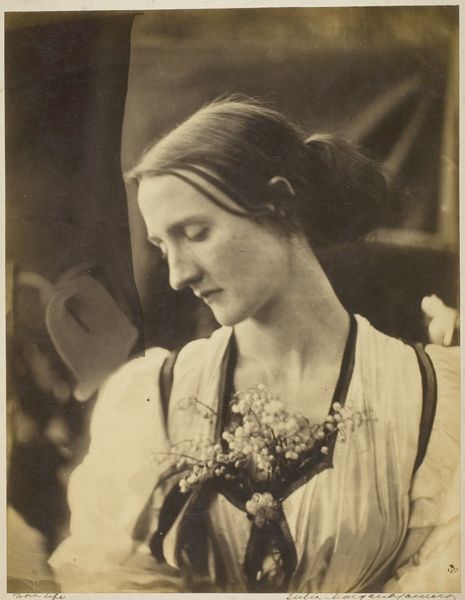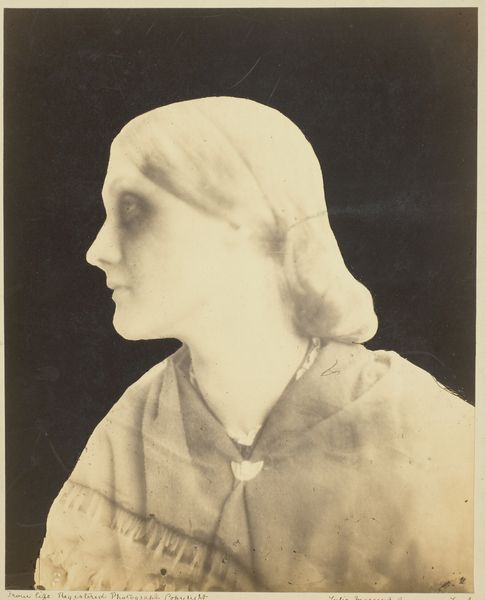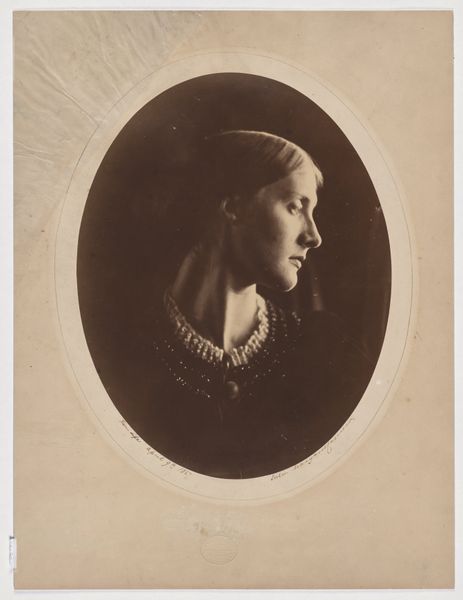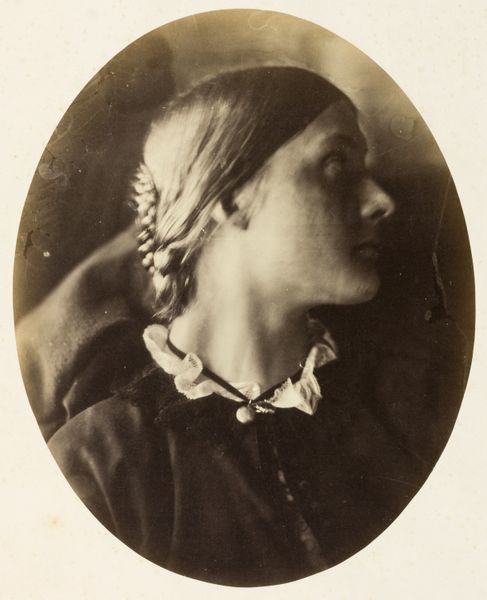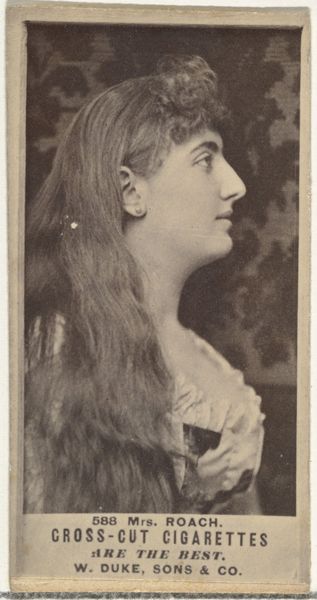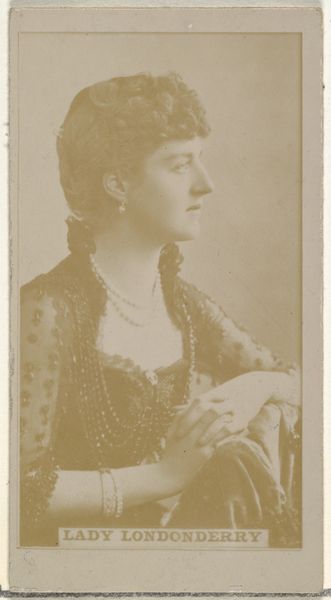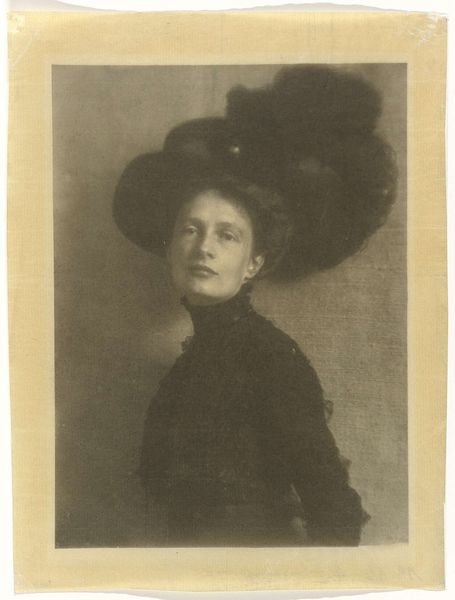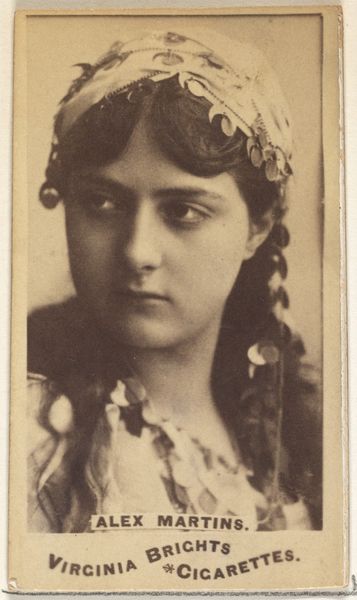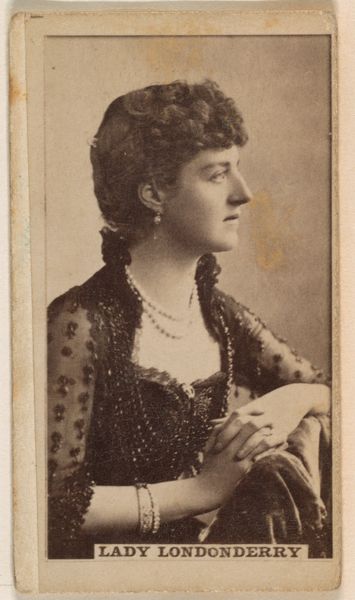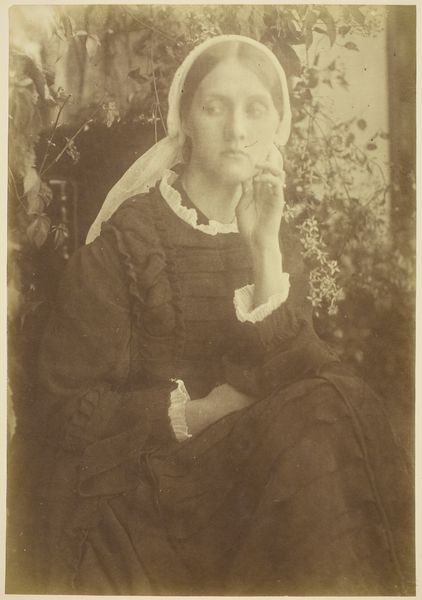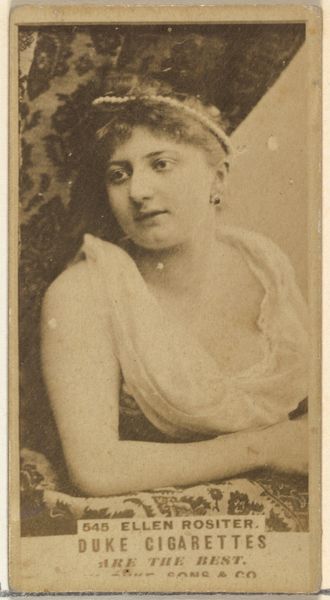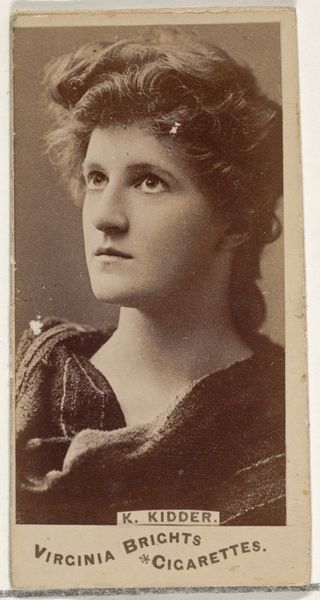
Copyright: Public domain
Curator: This is "Julia Jackson", a gelatin silver print made by Julia Margaret Cameron in 1867. Editor: A luminous profile, almost dreamlike. She seems to be floating in shadow. Is it sadness or serenity I see in that averted gaze? Curator: Cameron was quite unconventional. She deliberately used a soft focus, challenging the crisp, documentary style that was common at the time. Julia Jackson was her niece, and also the mother of Virginia Woolf, who later wrote about Cameron’s unique vision. Editor: You can see it. There's a Pre-Raphaelite quality, a romance. Like a painting striving to be something other than a clear record. A soul-portrait. It is less about what Julia Jackson looked like and more about how Cameron felt looking at her. Curator: It's fascinating how Cameron elevates her subject. Portraiture, particularly photographic portraiture, had different roles and possibilities in Victorian England. It spoke of both social status, and artistic ambitions, often walking a fine line between the two. Cameron definitely tipped the balance towards art. Editor: Absolutely. You feel this deep intimacy. The focus, or lack of it, lends an incredible tenderness, which is fascinating given that in its time, people either hated the process of early photography, or loved it for the clarity and almost scientific feel. And, for it to come out looking like this, is something else entirely! Curator: And Cameron, an upper-class woman, engaged in artistic production herself at a time when gender roles were much more narrowly defined. That made a statement of its own. Editor: The way she catches the light on Julia’s face makes her seem almost otherworldly. What do you think makes this image so enduring? Curator: I think it’s that very tension you described earlier – between representation and evocation. It captures a specific person in a specific time, yes, but transcends that to explore broader themes of beauty, memory, and human connection. Editor: Indeed. Thank you, Cameron, for seeing the poetry in her shadow, and in ourselves, for that matter!
Comments
No comments
Be the first to comment and join the conversation on the ultimate creative platform.
